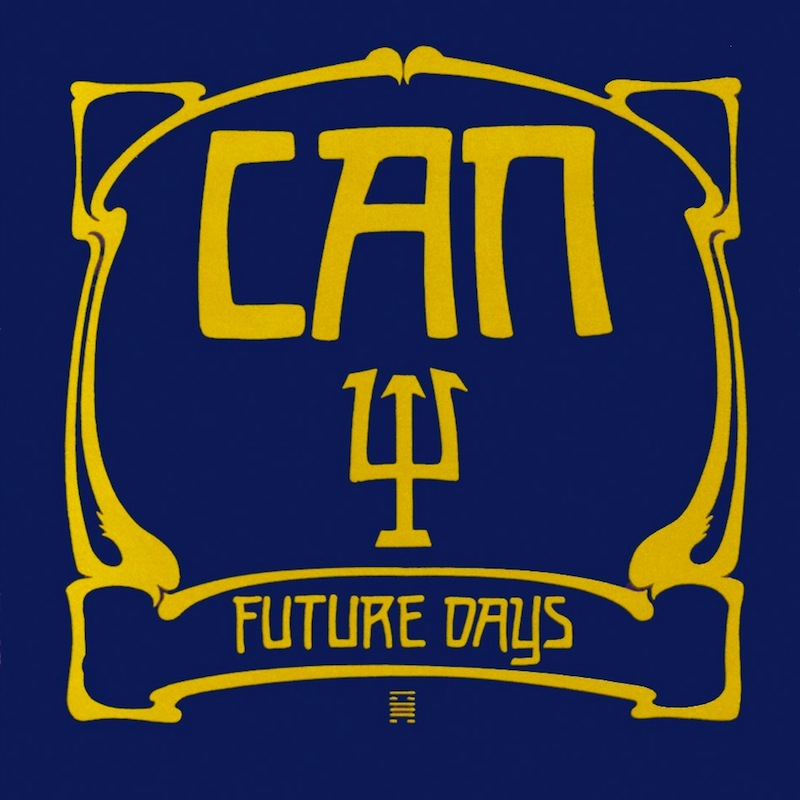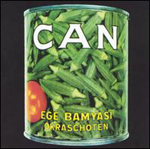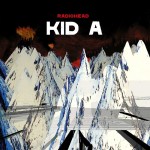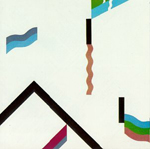Can : Future Days

During the ’70s, the progressive rock movement exploded and splintered off into countless other scenes and stylistic variations. There were the space rockers like Gong, mathematical art-rockers like King Crimson and Yes, and, the heavyweights, like Pink Floyd and Rush. But Germany was on an entirely different wavelength. Dubbed “krautrock“, a term that in hindsight has been viewed as being a bit derogatory, bands like Faust and Can dismantled the rules of rock music. Playing rock music influenced heavily by avant garde composition and putting rhythm at the center rather than chords and solos, Can created a sound whose ripples can be felt through the present day.
Though Can went through several phases and several singers, their most creatively fertile was the early ’70s, during which the band was fronted by Damo Suzuki. The last of his collaborations with the band, Future Days, is among the band’s greatest moments. Future Days is almost more like a jazz record than a rock one. Boasting only four tracks, two of which surpass eight minutes and one nearly twenty, it’s a long, sprawling epic with a dual-edged feel of both primal aggression and serene tranquility. Two songs are titled “Spray” and “Bel Air,” which perfectly match the oceanic quality of the disc, while in between, the band seems to fall into a heavily percussive side, Jaki Liebezeit’s percussion driving the core of the band’s music.
The title track opens the record, slowly building from silence into an atmospheric, loose jam session. “Spray,” meanwhile, starts with outer space improvisation. Odd percussion and quirky effects color the intro, while the latter half of the song finds Suzuki joining the band for a more grand, epic rock tune, albeit one that only Can could play. “Moonshake,” which lent the UK band of the same name that very moniker, is the most accessible and shortest song, clocking in at only three minutes and four seconds. It’s a funky, simple song not unlike Ege Bamyasi‘s “Spoon,” which was a German hit for the band.
It’s track four, “Bel Air,” that seems to steal the show on this disc, however. At just under 20 minutes, it’s hard not to notice this immense beast of a song. Initially boasting a sprightly beginning and an odd, muffled vocal by Suzuki, the song gradually turns into something larger and mysterious, shades of which can be heard in recent works by Radiohead, whose catalog frequently nods to the influence of Can. Suzuki seems all but a ghost on this track, as he does on much of the album, which leaves the remaining trio of musicians to stand out, which they do remarkably well, proving their worth throughout the many movements of the song.
Future Days, to some, is the last great Can album. It’s great—that much is not up for debate. But as to whether or not the albums that followed hold up is in the ear of the beholder, and there are some strong arguments to be made for some of their later, more accessible moves. If nothing else, it’s a fitting end to the band’s greatest chapter.
Similar albums/Albums Influenced:
 Can – Ege Bamyasi
Can – Ege Bamyasi
 Radiohead – Kid A
Radiohead – Kid A
 Wire – 154
Wire – 154
Jeff Terich is the founder and editor of Treble. He's been writing about music for 20 years and has been published at American Songwriter, Bandcamp Daily, Reverb, Spin, Stereogum, uDiscoverMusic, VinylMePlease and some others that he's forgetting right now. He's still not tired of it.

